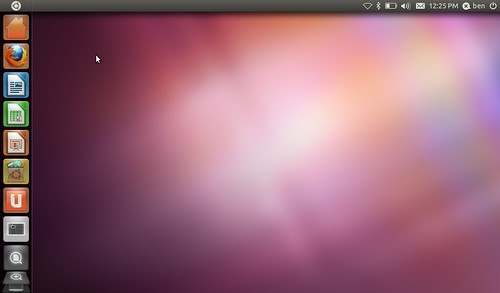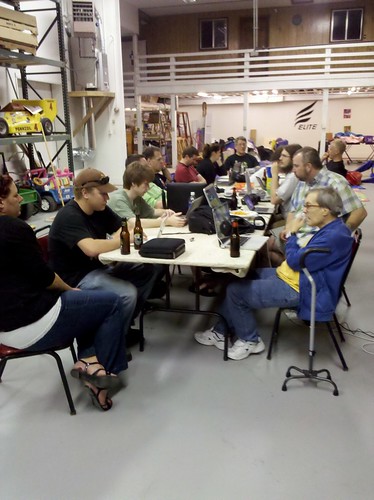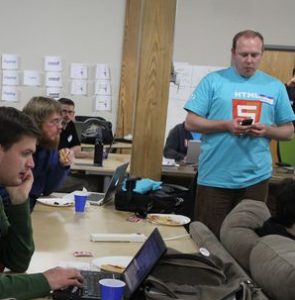In the computer world, a decade is a long time. In the world of the Internet, it’s an eternity. So when plucky new code hosting and project management services like GitHub and BitBucket started eating them for lunch, SourceForge decided it was time for an overhaul of their decade-old “forge” platform. The new version of their project hosting and management platform is called Allura. It’s fully Web2.0 buzz-word compliant, open source, and written in Python.
Dave Brondsema is one of the core Grand Rapids Python User Group (GRPUG) members, and he also happens to be a Sourceforge employee. He has been working his butt off on Allura, and now that it’s released he volunteered to give us a tour at the April 18, 2011 meeting. I’m not going to go over everything here – you can check it out yourself at the Allura project page or get a good overview from this ginormous poster. I am going to talk briefly about those features that will get me off of GitHub and back to SourceForge for hosting my projects.
Personal Projects: I never liked putting tiny projects or piddly little one-off scripts on the old  Sourceforge. Irrational though it may be, it always felt like overkill and I was imposing on them with my pathetic little projects. Allura has a personal project section in which I can stuff my wonderful little code nuggets without the hassle or perceived imposition of a full project.
Email Everywhere: In Allura, you can use email to do a lot of things that traditionally have to be done through a web form. This is a big WIN in my book because I hate having to visit a web page just to make some tiny addition or note.
URLs for Everything: I also hate having to drill down through multiple levels of web pages to get to the thing I want to do. It’s especially annoying when you have to explain to someone else how to find something. Allura has a URL for pretty much everything, so it’s easy to make a bookmark or link to whatever I need.
Project Plugins: Each project has a set of features you can enable at your whim. These include a wiki, discussion forums, git, mercurial, and bug trackers.
In all, it’s a good looking, easy to use, and powerful rewrite of SourceForge’s platform. The developers should be proud. I think a lot of people will move back to SF once they see all that Allura has to offer them.
We had a couple of new faces at the GRPUG meeting. I hope they enjoyed themselves, learned a few things, and will join us again in the future. It was great to have some new participants and viewpoints at our after-meeting dinner party. At the meal, we talked about everything from beginning with Python, IDEs, experiences with Linux, CSS3 and web development. If you’re curious about Python, you are also welcome to stop by a meeting, ask questions, and chat with us afterwards. The next GRPUG meeting is scheduled for May 2, topic TBD, so watch the web page or mailing list for updates.

 One of the current controversies in the Linux world is
One of the current controversies in the Linux world is 



